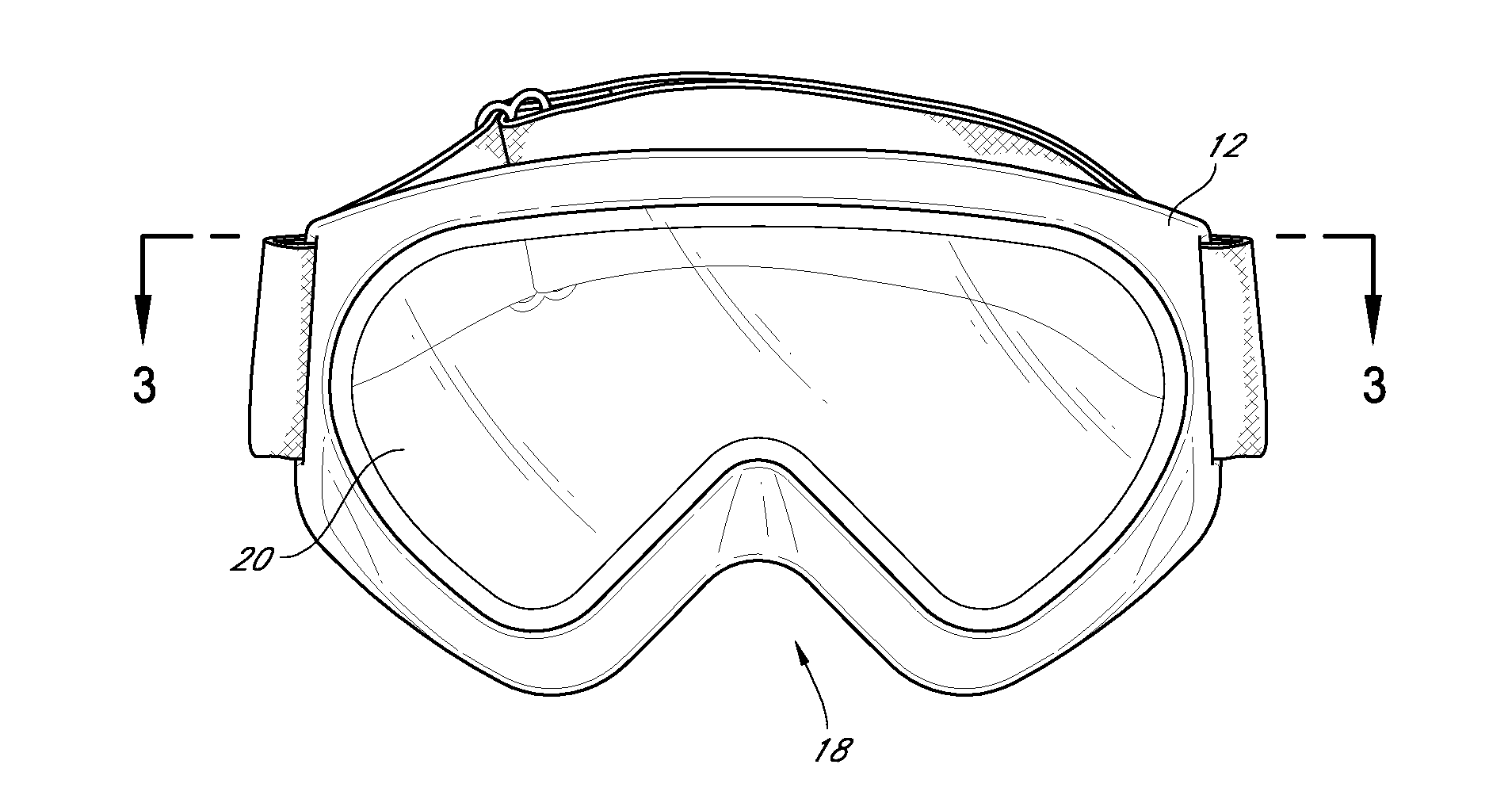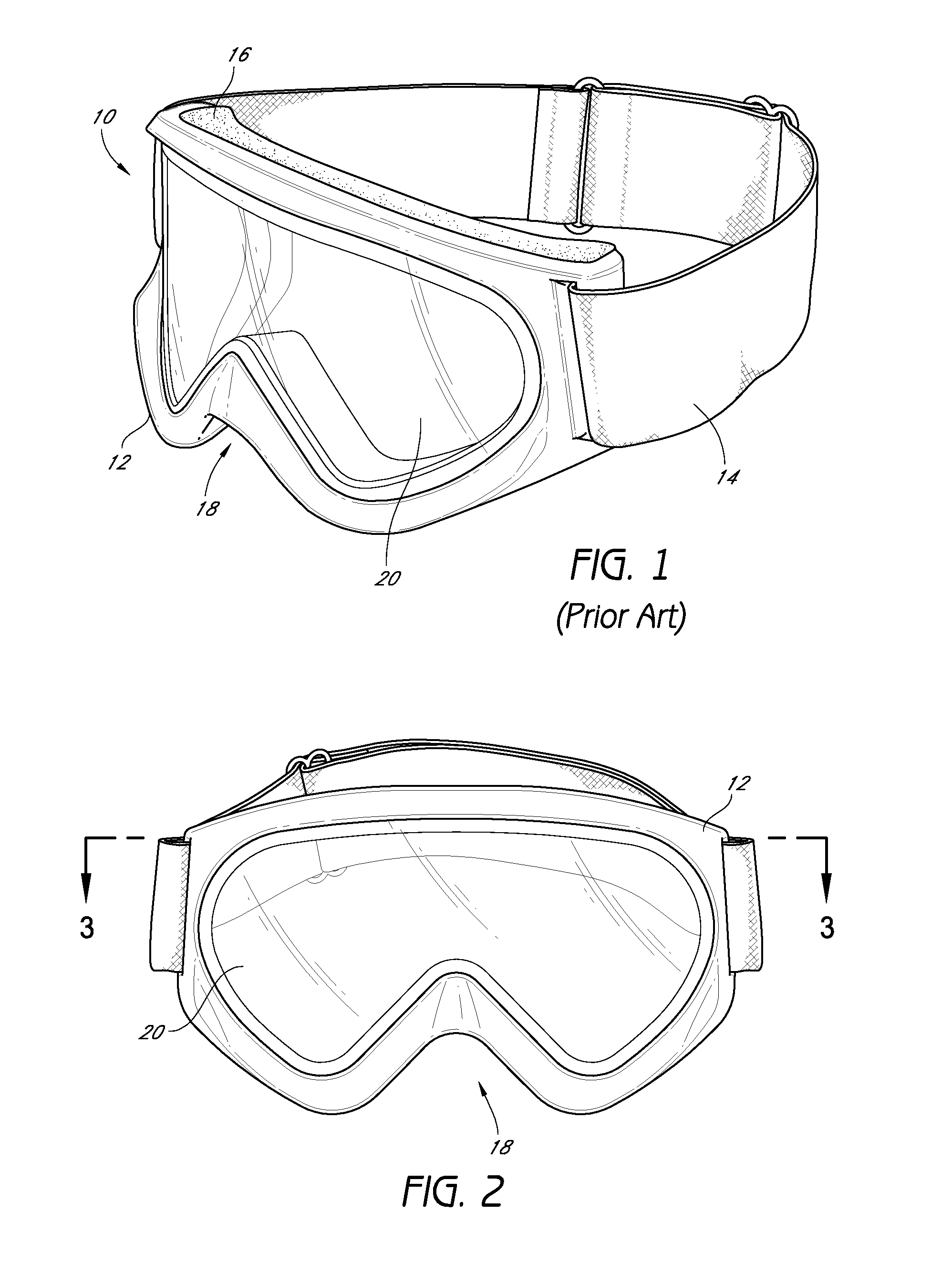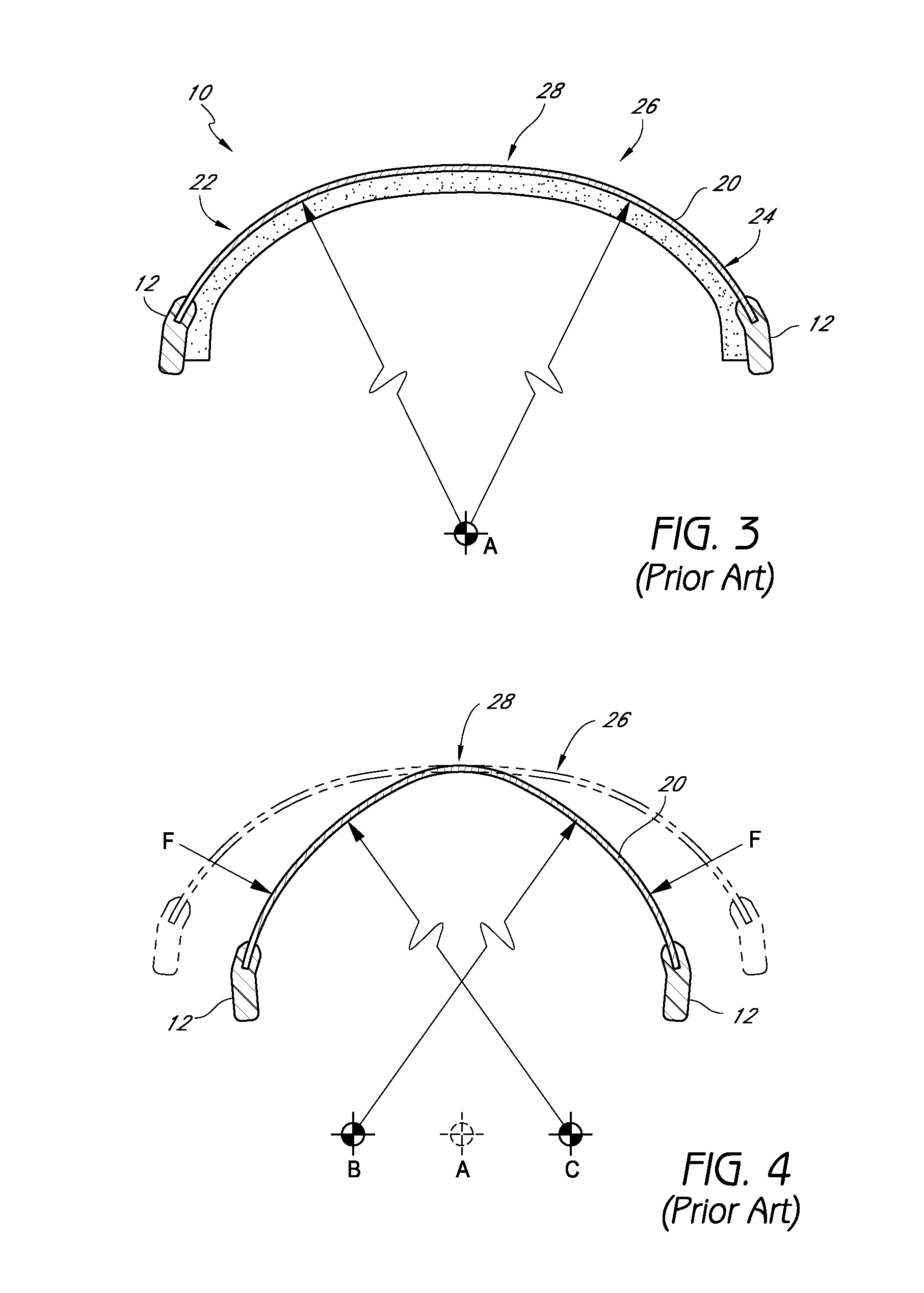Eyewear with rigid lens support
a technology of rigid support and eyewear, applied in the field of eyewear, can solve the problems of frequent gap between the foam component b, inability to maintain the desired optical characteristics, and uneven wear of the wearer's face, so as to improve ventilation and reduce fogging of the goggle
- Summary
- Abstract
- Description
- Claims
- Application Information
AI Technical Summary
Benefits of technology
Problems solved by technology
Method used
Image
Examples
Embodiment Construction
[0113]While the present description sets forth specific details of various embodiments, it will be appreciated that the description is illustrative only and should not be construed in any way as limiting. Additionally, although particular embodiments of the present inventions may be disclosed or shown in the context of unitary or dual lens eyewear systems, such embodiments can be used in both unitary and dual lens eyewear systems. Further, various applications of such embodiments and modifications thereto, which may occur to those who are skilled in the art, are also encompassed by the general concepts described herein. Furthermore, although various embodiments are shown in use with goggles, embodiments can also be used with eyeglasses and other forms of eyewear.
[0114]Some goggle embodiments are provided that overcome many of the disadvantages of the prior art, such as preferential bending, poor comfort, and optical distortion of the lens. Various embodiments are provided that can i...
PUM
 Login to View More
Login to View More Abstract
Description
Claims
Application Information
 Login to View More
Login to View More - R&D
- Intellectual Property
- Life Sciences
- Materials
- Tech Scout
- Unparalleled Data Quality
- Higher Quality Content
- 60% Fewer Hallucinations
Browse by: Latest US Patents, China's latest patents, Technical Efficacy Thesaurus, Application Domain, Technology Topic, Popular Technical Reports.
© 2025 PatSnap. All rights reserved.Legal|Privacy policy|Modern Slavery Act Transparency Statement|Sitemap|About US| Contact US: help@patsnap.com



